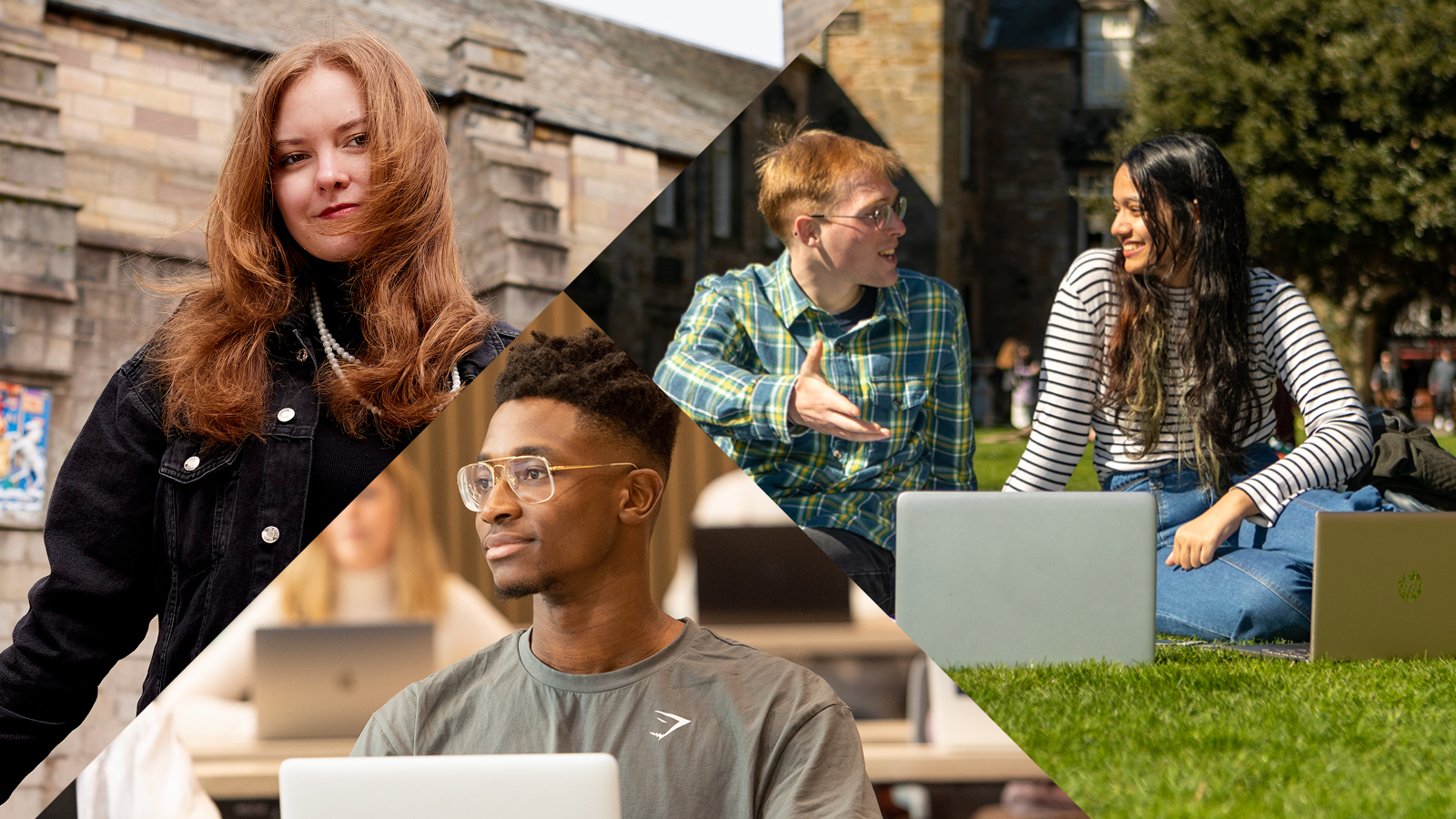SFC news published since 2018. See SFC archived content for earlier news articles.

Photos: University of Aberdeen, University of Glasgow, University of St. Andrews
What do software engineers learn about the evolution of AI when they sit alongside industry leaders, academics, and representatives of the public sector? That’s what we aimed to find out at the inaugural PlusEquals5 conference hosted recently by Edinburgh Napier University.
First a little bit about PlusEquals5 and Edinburgh Napier University. PlusEquals5 is a response to the accelerating pace of technological change in software engineering as new ideas, new tools and new ways of doing things continue to reshape the digital world. The event combined keynote addresses, breakout sessions, and panel discussions to explore key issues from AI-driven development to the challenges of sustainability and inclusion in tech. It provided a timely opportunity to examine how software engineering needs to evolve to remain relevant, ethical, and impactful.
For Edinburgh Napier University, the conference represented a strategic step in strengthening its engagement with industry. By opening channels for collaboration and foresight, PlusEquals5 supports the university’s broader mission to align education and research with real-world needs. It ensures that graduates are not only equipped with current competencies but are also prepared to adapt to future demands in a rapidly changing field. Looking ahead, the vision for PlusEquals5 is that it becomes a fixture in the Scottish tech calendar as a space where innovation, education, and industry converge to consider the future of software engineering.
Six major themes emerged from the conference and I shall attempt to summarise the key insights for each of them.
First of all there was the theme of artificial intelligence as a partner for transformation. As a result of AI, software engineering is being reshaped from a discipline that is based on the writing of code to one that is focussed on the ability to orchestrate workflow, manage a productive collaboration between human and artificial intelligence, and a capacity for ethical reasoning. Software engineers need abilities in prompt engineering and AI evaluation while still maintaining critical thinking skills.
The conference identified a shift around soft skills such as communication, cultural awareness and systems thinking from desirable extras to absolute essentials. And they need to be balanced with the traditional technical skills and ability to collaborate.
Looking further into the interaction of different skills sets, there was a recognition that Cloud infrastructure, cybersecurity, and legacy system integration demand not just technical knowledge but a clear understanding of financial, human, and organisational success factors.
Perhaps surprisingly – but of fundamental necessity – the software engineer in an AI-driven future must develop empathy, cultural literacy, and the capability to design in an inclusive way. This is because successful software systems must take account of cultural context, user experience, and diverse needs.
Crucially for many people reading this blog, software evolution requires a transformation in the approach to education software engineers. The approach must shift from one arguably focussed on the delivery of content to one of problem-based learning; a curriculum that integrates communication training and socio-technical awareness.
Finally, there was agreement that software engineers need greater awareness and familiarity with the wider context of their work including international, political, sectoral and environmental perspectives.
Reflecting on the above, it is clear that the conference established important themes and directions. However, the work of translating these insights into concrete changes in curriculum, hiring practices, professional development, and organisational culture will be an ongoing process – and one that individual organisations must undertake according to their own circumstances and priorities.
The success of this transformation will depend on continued dialogue between education and industry, sustained investment in new approaches to learning and development, and a commitment to viewing technical excellence and human understanding as complementary rather than competing priorities.
The next PlusEquals5 conference will take place on Thursday 2 April 2026 at Edinburgh Napier University’s Craiglockhart Campus. We welcome early proposals for talks, panel sessions or workshops, and you are invited to send session outlines to plusequals5@napier.ac.uk You can find recordings of the event at the PlusEquals5 YouTube channel.
Brian Davison, Lecturer & Teaching Fellow, School of Computing, Engineering and the Built Environment, Edinburgh Napier University 16/9/2025

